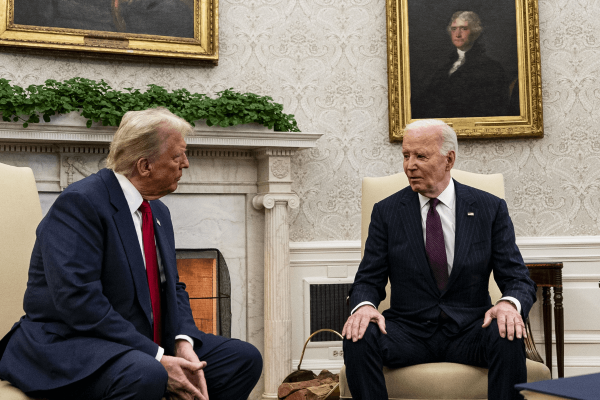Mustafa Ergin, a shopkeeper, sits in the back of a crowded audience in Istanbul listening to a panel of economists speaking about cryptocurrencies.
Ergin, 42, who owns a corner store nearby, has spent the last few months agonizing over whether he should invest in bitcoin. “I have not bought anything yet, but I want to because it looks like someone could really make money this way,” Ergin said. “But first, I want to figure out if it’s permissible in Islam.”
With prohibitions on gambling and earning interest, Islamic teaching has a lot to say on what Muslims can do with their money.
Turkey, like much of the world, has witnessed a dizzying rise in interest in bitcoin and the hundreds of other cryptocurrencies that have been modeled on it, driven by stories of working-class people striking it rich with a new technology that few seem to understand.
And while Turkey accounts for a sliver of the global bitcoin trade, it is among the top 10 countries invested in the cryptocurrency. Bitcoin trade here has gone from about 9,000 transactions a month in May 2017 to 42,000 in December 2017. A handful of companies in construction, education, and the food industry have begun accepting cryptocurrencies for payment, and there are daily seminars in cities such as Istanbul where financial experts appear before enamored audiences to explain how one can cash in.
“You go to a teahouse and people are talking about bitcoin, not about the political or economic situation, but about bitcoin, because in the news they see some people made big money,” said Serif Dilek, an economist at the Istanbul-based Foundation for Political, Economic and Social Research.
In 2011, three years after it first became available, one bitcoin sold for $1. In 2017 alone, its value rose 900 percent, peaking at nearly $20,000, making it by far the best-performing asset in the world that year.
The value of bitcoin and other cryptocurrencies fluctuates widely, leading some to caution against investment. As governments debate whether the sector should be regulated to protect investors, for many Muslims in countries such as Turkey, there is an additional, much more fundamental question to be answered: Is investing in bitcoin even permissible in Islam?
Diyanet, Turkey’s Religious Affairs Directorate, an official body that trains clerics to serve in the country’s more than 75,000 mosques, has chimed in twice since December. One ruling declared that since bitcoin and Ethereum, another cryptocurrency, had no intrinsic value like gold, nor were they backed by a government, they did not meet the standards of reliability Islamically required to make them a currency. Another ruling in January said the factors driving the value of cryptocurrencies were too shrouded in secrecy, exposing investors to fraud and use by criminal networks. The grand mufti of Egypt, Shawki Allam, issued a ruling the same month, saying bitcoin was haram —prohibited in Islam — because it was not regulated and was being used for money laundering, fraud, and funding terrorist organizations. Leading Saudi, Kuwaiti, and Palestinian clerics have followed suit, their statements coinciding with government warnings.
In December, Turkish Deputy Prime Minister Mehmet Simsek drew ridicule from Turkish economists after he said the bitcoin phenomenon had “surpassed tulip mania,” a reference to the speculative bubble that occurred during the Dutch Golden Age in the 17th century, after the flower had been introduced to Europe by the Ottoman Empire. “One should stay away from this speculation,” Simsek said. “Bitcoin could well collapse one day as suddenly as its price has excessively risen.”
The comments from religious clerics and governments reflect a grass-roots interest in bitcoin and other cryptocurrencies, said Zeyneb Hafsa Orhan, a professor in the department of Islamic economics and finance at Istanbul Sabahattin Zaim University. “There have been a lot of questions and debates on it. Diyanet has a phone hotline so people can call and ask for religious opinions, and I guess a lot of people have been calling them asking if bitcoin is acceptable,” she says. “As a teacher, I have a lot of students asking me as well if it is acceptable to make investments in it.”
Ahmad Sabree, head Shariah consultant at EthisCrowd.com, a Jakarta-based Islamic real estate funding platform, said he is increasingly finding himself in consultations with other scholars who are trying to understand bitcoin and other cryptocurrencies. “Now you can see Diyanet, Egypt, and others came out with decrees, so now we are paying attention to it.”
Scholars should be weighing in on economic matters, just like any matter dealing with safeguarding the public interest, Sabree said, but rulings need to be carefully researched and worded, or they could have unintended consequences. “For example, if bird flu is going on in one country, it’s a really bad disease, and religious authorities are supposed to care for health, so they can, for instance, recommend that people not go to countries experiencing bird flu,” Sabree said. In the case of cryptocurrencies, though, he has noticed some religious scholars do not have all the facts.
“You have to do your homework, especially for bitcoin and other cryptocurrencies. … Being lazy is not the way to approach this. Most people even working in banks don’t understand it,” he said.
When a leading authority issues a flawed ruling, Sabree said, “it just adds another stone into that wall that is built up that says ‘scholars just don’t get it.’ A lot of young people want to be Muslims but have increasing dissatisfaction with scholars that don’t seem to understand the modern world.”
For starters, the argument that cryptocurrencies are impermissible because they are favored by criminals is problematic. “I am sure the largest currency used on the black market, for [buying] haram things, is the U.S. dollar. So if the question of a currency being haram is what it is used for, the dollar would be the most haram,” Sabree said. “Just because a tool is used for something haram, doesn’t mean the tool is haram.”
The other controversy, and the more important one, is whether something like bitcoin is akin to gambling. Trading in futures, for instance, is generally considered haram, because transactions must involve the exchange of goods that are in hand at the time. Many of the same arguments religious scholars make against investing in the stock exchange, said Orhan, are also being applied to cryptocurrencies. “If investment in the stock exchange is done using real transactions, there cannot be criticism of those, but many religious decrees have been issued by scholars saying investing in stocks is not acceptable because it may be used for speculation.”
But others, like Sabree, believe the question of what constitutes impermissible speculation is an open one. “People speculate in real estate, in everything when it’s hot. The real question we have to ask is if it has a real value … and I do believe it is a [legitimate] digital asset,” he said. If someone asks him if they can use the money earned from bitcoin, for example, Sabree gives an emphatic “yes,” because it is just like any digital asset, such as software for example. “You didn’t earn it in a casino. It’s just like a digital asset. You bought the asset when it was low, and you sold it when it was high. … It’s not like you bought a nice bottle of wine, kept it for a while and now it’s gone up 10,000 percent in value – that’s different, you’re not supposed to buy wine in the first place.”
Whether a currency that is not yet accepted by governments and businesses at large should be permissible is a different matter, and most Islamic scholars seem to agree that in its current, unregulated form, bitcoin cannot be considered a legitimate currency.
In order for something to be Islamically permissible for use to pay for a purchase, Sabree said, it must have two characteristics: It must not only be valuable – as bitcoin is – but it must also be reliable. While the U.S. dollar, for instance, is no longer backed by gold reserves, there is a system of official guarantees by governments that provides the same reliability.
“The problematic part is that it is not currently used for buying something, for real transactions, and it’s being used for speculation a lot,” said Orhan. “When it is used for buying something real, and accepted by many people, I think it can be accepted as a medium of exchange. In ancient times, we did not use money as we do today. They used tobacco or salt, for instance, because they were recognized as money, so why not, one day [bitcoin] could also be like that.”
The debate over whether bitcoin is a permissible currency or investment, said Onur Baran Caglar, a FinTech consultant and lecturer at Istanbul Aydin University, misses the real potential of the underlying technology behind cryptocurrencies. The real potential of bitcoin, Caglar said, is the blockchain, a digital ledger that keeps track of all bitcoin transactions worldwide. It’s like if you followed a dollar bill and kept a record of everyone who bought or sold something using it, then made that record available to anyone in the world.
That idea could be much closer to what Islam intended for a currency to look like, Caglar said, especially considering how bitcoin’s original creators meant it to be a new currency that would sidestep the global banking industry, one that is too tangled with interest-bearing loans and companies dealing with haram products. “The U.S. dollar, for instance, has serious problems too,” Caglar said. “It’s no longer backed by gold or anything, but by America’s guns.”
“Blockchain is actually in the Quran,” Caglar said, recalling a verse in the second chapter of the book that commands followers to bring witnesses and write down a contract or transaction, “whether it is small or large.”
“So the concept behind cryptocurrencies is right there, in the Quran.”
Got something to say about what you're reading? We value your feedback!






